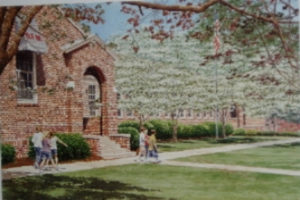Robert F. Munroe Day School
Summer Reading 2024
Mandatory summer reading was a Munroe staple in the past, and it is making a resurgence in 2024! Literacy and language acquisition are extremely important to student success. We want to see our students be exposed to curriculum-guided literature, and be introduced to life-applicable lessons through rich characters, engaging stories, and historical accounts.
Lower School Summer Reading:
Upper School Summer Reading:
This document includes the novel list for each grade level and the associated reading and assignments. All novels have the hyperlink to Amazon for the paperback edition. Students will read the novel that corresponds to the grade they will be promoted to for the 2024-2025 school year (for example, if your child is in 5th grade this year, they will read A Wrinkle in Time as they will be in 6th grade next year. All assignments will be due at the end of the first week of school.
*Please note that this document includes hyperlinks to associated assignments and resources. If you desire printouts of the associated articles or resources, they will be available for pick up in the front office throughout the summer. RFM Main Campus summer hours are Monday-Thursday 8:30 am to 2:30 pm.
Grade 6 Required Reading & Assignments
- Novel: A Wrinkle in Time by Madeleine L’Engle
- Article to be read & completed after reading chapter 5 of A Wrinkle in Time: “How Do We Tell Right from Wrong?” by Anne-Marie Reidy
- Writing Assessment: “How Do We Know Right from Wrong?”and A Wrinkle in Time both highlight the good and bad choices that people make, and how the decisions we make have rewards and consequences. Students will need to compose an essay of at least three paragraphs on the following writing prompt: How do you think people recognize the difference between right and wrong?
Grade 7 Required Reading & Assignments
- Novel: Flush by Carl Hiaasen
- Article to be read & completed before reading Flush: “Tiny Plastic, Big Problem” by Alison Pearce Stevens
- Writing Assessment: Students will need to compose an essay of at least three paragraphs on the following writing prompt: How does the trash and waste that often ends up in waterways and oceans have negative impacts on the animals and the environment? How do the characters in the novel react to the effects of this kind of polution?
Grade 8 Required Reading & Assignments
- Novel: Fahrenheit 451 by Ray Bradbury
- Article to be read & completed before reading Fahrenheit 451: “Why Do People Follow The Crowd?” by ABC News (2006)
Writing Assessment: In Part One of Fahrenheit 451, the protagonist (main character) begins to question why society has accepted the rule of a totalitarian government. After reading Fahrenheit 451 and the ABC News article, compose an essay of at least 5 paragraphs that analyzes and discusses why you think the people in the novel accepted totalitarian rule. Why do you think the people chose not to rebel?
Grade 9 Required Reading & Assignments
- Novel: Just Mercy by Bryan Stevenson (copies of this novel are available at Munroe please see Mrs. Burch or Coach Mack)
- Article to be read before reading Just Mercy: “I Am Not An Inmate … I Am A Man. And I Have Potential” by Deena Prichep
- Article to be read after reading Just Mercy: “Do Juvenile Killers Deserve Life Behind Bars?” by Nina Totenberg
Writing Assessment: Compose a 1-paragraph response to each of the following questions. Student responses must include textual evidence in proper citation format (MLA) with page numbers. Students should have a total of 5 paragraphs.
- Research Loving v. Virginia. What surprises you about this case? Do you think these issues are still relevant in our current times?
- How does diversity in a jury affect its deliberations?
- Reflect on the types of things kids do, and that you have done as a kid, that could lead to criminal charges. In your opinion, are there ever reasonable situations where minors should be charged as adults?
- How would you react to receiving a letter like the one Ian writes to Stevenson? 5. Why are wrongful convictions and illegal trials involving young children very common in the United States?
Grade 10 Required Reading & Assignments
- Novel: Night by Elie Wiesel
- Article to be read & completed before reading Night by Elie Wiesel: “Elie Wiesel” by The United States Holocaust Memorial Museum
- Article to be read & completed after reading Night by Elie Wiesel: ”Convention on the Prevention and Punishment of the Crime of Genocide” by General Assembly of the United Nations (1948)
Writing Assessment: Compose a 1-paragraph response to each of the following questions. Student responses must include textual evidence in proper citation format (MLA) with page numbers. Students should have a total of 7 paragraphs.
- How were Elie Wiesel’s Holocaust experiences shaped by his own individual circumstances (his age, where he lived, his family)?
- How did events of World War II impact what happened to him and his family? 3. What is the purpose of memoir?
- What reasons did Elie Wiesel give for writing this memoir?
- How was Elie Wiesel changed by the Holocaust experiences he describes in Night (change over time)?
- How does Elie Wiesel purposefully employ the dynamic character technique as a writer to convey his real life experiences during the Holocaust?
- How did Elie Wiesel’s work after the Holocaust reflect his experiences in the Holocaust and his desire to act as a witness?
Grade 11 Required Reading & Assignments
- Novel: The Scarlet Letter by Nathaniel Hawthorne
- Article to be read & completed before reading The Scarlet Letter: “Puritan Laws and Character” by Henry William Elson
- Short Story to be read & completed after reading The Scarlet Letter: “A Dead Woman’s Secret” by Guy de Maupassant
Writing Assessment: Compose a 1-paragraph response to each of the following questions. Student responses must include textual evidence in proper citation format (MLA) with page numbers. Students should have a total of 9 paragraphs.
- Trace the use and development of the letter “A” throughout the novel. How does its initial meaning change? Why?
- How is each of the three main characters affected by isolation? How does the isolation differ for each of them? Explore physical as well as emotional and spiritual isolation. 3. Among Hester, Dimmesdale, and Chillingworth, which character is guilty of the greatest wrong? Which is the most wronged by another?
- Which of the main characters is the strongest? Consider moral and spiritual strength. In what ways is the novel a testament to the strength of the human spirit?
- Analyze the role of Pearl throughout the novel. What purpose does Hawthorne have her play for Hester? For Dimmesdale? For Chillingworth? For the village?
- Discuss the relationship Hawthorne explores between outer appearance and inner character.
- At the novel’s end, the author admonishes the reader to “Be True! Be True! Be True!” (p. 246). Consider the multiple instances Hawthorne chooses to speak directly to his reader. 8. What seems to be the author’s point of view when he relates Hester’s questions about womanhood (p. 156)?
- What evidence from the novel adds to the argument that The Scarlet Letter is a feminist novel?
Grade 12 Required Reading & Assignments
- Novel: The Fault in our Stars by John Green
- Article to be read & completed before reading The Fault in our Stars: “The New Survivors” by Pamela Weintraub
- Article to be read & completed after reading The Fault in our Stars: “The Road Not Taken” by Robert Frost
Writing Assessment: Students must compose an essay of 3 to 5 pages on the following writing prompt. Student essays must be in proper MLA format, and must include in-text citations with page numbers.
Writing Prompt: Research the origins and psychological foundations of Maslow’s Hierarchy of Needs. Evaluate whether or not Hazel truly is stuck at the second level of the Hierarchy due to the fact that her cancer continually keeps her health in jeopardy. Consider whether a person whose security is in stasis at one of the lower levels of the Hierarchy is unable (or would be unwilling) to strive for security in the realms of emotion, artistic expression, and other forms of self actualization. Does ill health truly restrain a person from wanting to be loved or seek out beauty?
Academic Honesty Expectation
Robert F. Munroe Day School considers plagiarism to include the following: submission of a work product that is not a student’s own, submission of work product that is a result of AI or other digital resource, submission of a work product that is sourced from a paper mill, and/or paid website. All student coursework will be subject to a plagiarism check. Students found to be in violation will receive a zero (0) or “F” for all associated coursework, will receive a disciplinary notation in the cumulative student file, and will be subject to further consequences as determined by the RFM Dean of Students and the RFM Honor Board. Note that three instances of academic dishonesty can result in a negative consequence up to and including expulsion from Robert F. Munroe Day School.

 Open Positions
Open Positions




